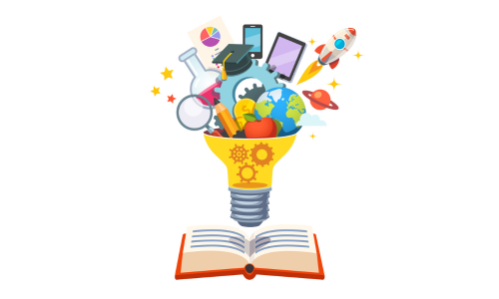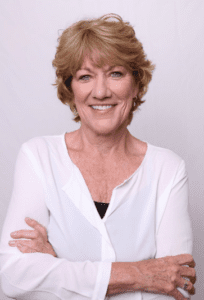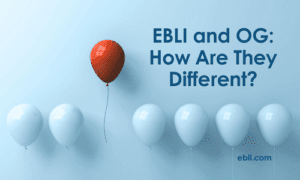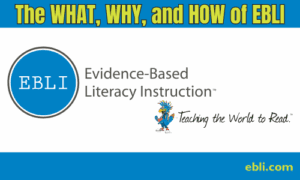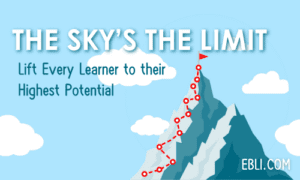Guest Blog
The Literacy Challenge: An Urgent Issue and a Path to Solutions
We are facing an increasingly dismal literacy crisis. This problem has been restated thousands of times by politicians, pediatricians, desperate mothers, and educators. There is no time to spend on repeating what is known.
Spoiler alert: There is a solution to the reading crisis.
97 to 100 percent of all human beings can be taught to read. Reading doesn’t just mean “word calling”; it means processing the language on the page, relating to it, and using it to communicate. I am one of thousands helping teach the “unteachable” to read. The students aren’t broken, the teachers aren’t broken, but the current approach is flawed. Lives are being deeply affected and in some cases, taken by suicide, out of despair. Will you join me in helping teach those who have not yet been taught?
A Personal Journey
I’d like to tell you about one of my favorite students. As a toddler, this student was developmentally delayed walking and talking. She could not hear sounds clearly because of chronic ear infections. Her mother was fearful that she was “special”, so she took her to a developmental pediatrician who diagnosed her with the “baby of the family syndrome.” Her older sisters carried her everywhere, waited on her hand and foot, and even answered for her. Her mother disregarded her maternal instincts once the doctor disregarded her concerns; this was a big mistake. Humans have gut feelings for a reason. So, don’t ignore yours.
This child was not late talking because her sisters were speaking for her; she was not processing sounds. She had a phonological processing disorder as well as an expressive and receptive language disorder.
This little girl loved kindergarten. Her weekly highlight was the introduction of The Letter People and this part of her day was much anticipated. She reveled in the class library, the feel of the books, and the smell of the pages. The bright home-making center was another place she frequented to organize the kitchen and the play food. The beautiful piano music being played by her teacher as she entered the classroom filled her with joy.
By first grade, school was no longer exciting. It was no longer engaging. It was no longer accessible. Her learning just wouldn’t stick. Language came in way too fast and out too slowly. Confusion and shame were building by age six.
Eventually, a voice moved inside her head that spoke radically different from what she was hearing from her loving family. This voice in her head was convincing her a story of stupidity and incompetence and she believed all of it.
Throughout the rest of her school career, she felt lost on so many levels, especially academically. Without the steadfast support of lifelong friends, she would have drowned in her sadness. She pushed through as best she could.
On the day of her high school graduation, as she joined the procession with her peers, she joyfully remarked, “I can’t believe I made it”! Then she heard the stinging remark, “I can’t believe it either” coming from her math teacher. It almost drained the pure joy out of her graduation experience.
The next day, she left for college at the only university that would accept her, with the stipulation that she attend and pass summer school. So, she sent her yearbook to the beach with her friends to have signatures collected, and she packed up and headed to Tuscaloosa.
Not only did she pass summer school, but she excelled all four years and graduated. She went on to get her Master’s in Elementary Education. That student was me.
Looking Back / Survival and Determination
I wish I could tell you that those grades or the ones from my master’s degree were a reflection of my new learning. They were not. They were a reflection of survival. Acquiring them required countless hours of studying, regular meetings with professors, and quickly building friendships with the brightest students in each of my classes. I was severely dyslexic and had no clue.
Once employed as an educator, I was determined to be the best first grade teacher. Every day during my planning period, I would visit my mentor’s room and observe her every interaction while voraciously taking notes. Everything I learned about teaching first grade came from her classroom, not from the university I attended. I wanted to save all my students; I knew what it was like to be flailing and forgotten.
I started each annual open house telling parents that if their child didn’t learn to read it wasn’t their child’s fault. I wholeheartedly meant this. At the end of each school year and over the summer, I volunteered to work with my lowest students to help bridge the gap to second grade.
Unfortunately, I didn’t have all the tools to rescue all of my students. In some cases, no amount of determination on my end or the effort of my students was enough. I was not equipped to teach the most struggling students.
A Turning Point
After my youngest child went to kindergarten, I also went back to school. I treasured the time I spent learning from an outstanding Orton Gillingham Fellow. FINALLY, I thought, “someone teaching me how to teach others.” I greatly appreciated everything I learned and was even prouder to become an Associate-Level Practitioner.
I loved tutoring, but unfortunately, I still didn’t come close to my goal of reaching all my students. I assumed it was a lack of proficiency on my part. I hadn’t even considered a different teaching approach. That was until my path crossed with Holly, who became my friend.
A New Approach: The Breakthrough with EBLI
Holly had been struggling to teach her brilliant daughter to read. She hired me to help tutor her daughter. This brilliant child could repeat every rule she’d been taught and looked like a good reader, but things weren’t knitting together, and she wasn’t reading fluently.
Her assessment of skill knowledge indicated she should be a good reader. She was automatic with her phonics drills, but these skills did not translate to efficient reading. Knowing grapheme-phoneme correspondences isn’t enough for some kids. Despite having exceptional working memory, the rules were overloading her brain; she couldn’t remember each spelling rule and, if she did remember, she wasn’t sure where to apply the rule. She knew that the letters <ch> could be read as /ch/,/k/, or /sh/, but could not read the word, ‘in’ with automaticity or correctly spell the word ‘was’.
Holly continued to search for answers for her daughter. She found them when she discovered Evidence Based Literacy Instruction (EBLI). Holly became trained as an EBLI tutor and that is when everything changed.
I also had a student I wasn’t reaching after months of tutoring and I was desperate to help them. I knew this child was extremely bright, but every other teacher had their doubts. Holly suggested I try EBLI and, within weeks, I began my training.
I was floored by the immediate progress this student made. In one lesson, she went from laboriously reading three-letter words to reading several sentences with simple words. Her writing improved and she began carrying around a notebook and pen.
She was finally reading, and I was astounded by her progress! I immediately switched every student on my caseload to EBLI.

The Impact of EBLI
If only someone had used this approach with me! If this had been part of my coursework in college, or if I had known sooner, I could have circumvented so much trauma for so many of my students (and for myself). The more and more I taught this approach, the more excited I became. Immediately, I noticed my students were much more engaged, focused, and READING. Their reading solidified and their writing improved significantly faster than I had witnessed with other approaches. I’m talking months, not years, for remediation.
For the first time in my life, it felt like a light had switched on, and my learning no longer felt like it was seeping through a colander.
Unbeknownst to me, while teaching EBLI to others, I reaped its benefits too. I created many new neural pathways; I rewired my brain thanks to EBLI!
What used to take me hours to read, learn, and study, now happens quickly. Instead of having to re-read information over and over, listen to an Audible book, or depend on an oral summary from a treasured friend, I now can read, write, and understand with the fluidity of a neurotypical brain.
EBLI is an efficient system for teaching students (and even teachers) to read, write, and spell to their highest potential. It has transformed both my life and the lives of my students. I am more confident, focused, and intelligent because of EBLI. EBLI turned the lights on for me, and now I can give that gift to my students.
The Impact of Literacy Beyond the Classroom
I often think of all the students I did not reach as a classroom teacher and as a tutor before finding EBLI. I have found myself searching for some of them on Facebook with the hope of reconnecting and offering my help using EBLI.
One unfortunate search led me to a student who is now incarcerated. That hit hard.
This is not just a story about learning to read; it is also about the implications of igniting a learner’s entire language center of the brain. In my opinion, learning to read without tapping into one’s ability to enhance their speaking vocabulary, writing, and comprehension is a waste of time.
Remember: I could read because I had taught myself to memorize many words. That barely served me. With EBLI, we avoid demeaning our students. We teach them using difficult and interesting texts, raising the bar and challenging them to be successful. We provide the scaffolding support needed to ensure students begin reading or improve their reading in their very first lesson.
Taking Action
Please do not assume that you, your child, or your students can’t be taught to read, write, or spell to their highest potential. That is just not true.
Do not accept the stories that “some” will only be able to go so far in life. BALONEY!
Would you please trust me? If I had not given EBLI a shot, my literacy learning and the literacy learning of my students would have continued to suffer. Is there someone in your life who others may have given up on already?
If you would like to learn more or take action, please consider the following:
Visit the EBLI website to learn more
There are many Webinars and Blogs which are a wealth of information
This is a webinar interview of me with a Q & A that expands on my story
Check out the EBLI Apps for student instruction
EBLI Space
EBLI Island Sight Words Made Easy
Watch the documentary The Truth About Reading
Share this article with your child’s teacher, administrator, and pediatrician
We can all grow and learn new ways to reach our students and meet their needs. Will you join me in helping teach the world to read?
To learn more about my story, including a Q&A, click this link to access my interview with EBLI Founder Nora Chahbazi.
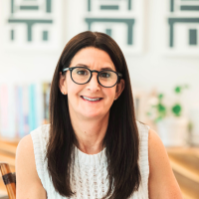
Viki Stein
Literacy Specialist, Educator, and Advocate for Empowering Readers of All Ages
Viki is is a dedicated reading interventionist specializing in Evidence-Based Literacy Instruction (EBLI), helping both children and adults achieve their full potential in reading, writing, and spelling. With more than three decades of experience in education, Viki has transitioned from a classroom teacher to a highly sought-after literacy specialist.
Her career began in public education, where she taught first grade, kindergarten, and early intervention. In 2005, Viki earned her Associate Level Certification in Orton-Gillingham, marking the start of her tutoring career.
Driven by a desire to see all her students succeed, she pursued further training and became a certified EBLI interventionist, discovering the immense potential of this speech-to-print approach. Viki’s personal journey of rewiring her own dyslexic brain while teaching EBLI has given her a unique perspective and deeper empathy for her students. She now reads, writes, and spells with the ease of a neurotypical brain and is passionate about helping others break free from the shame and limitations associated with being sub-literate.
Viki is a fierce advocate for individuals who struggle with literacy and works tirelessly to ensure they overcome these challenges. Her mission is to spread the message that anyone can be taught to read, unlocking their inner genius.

